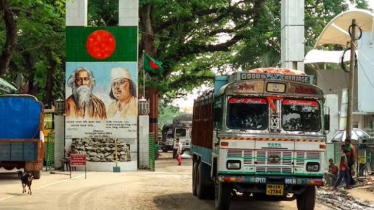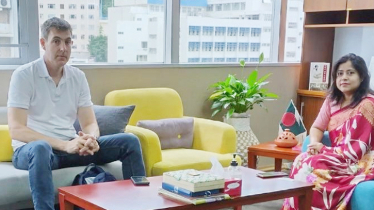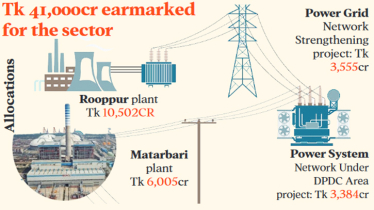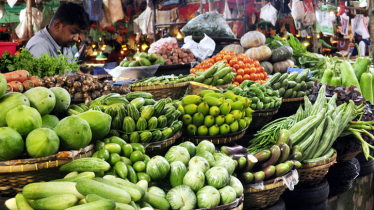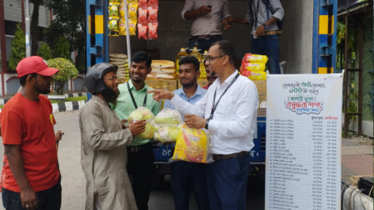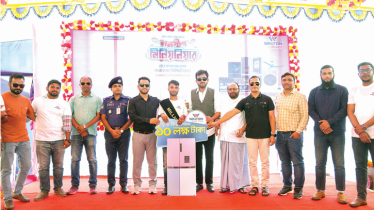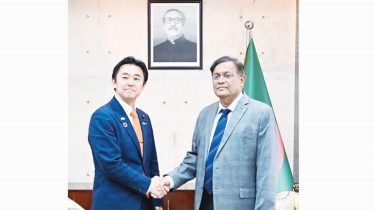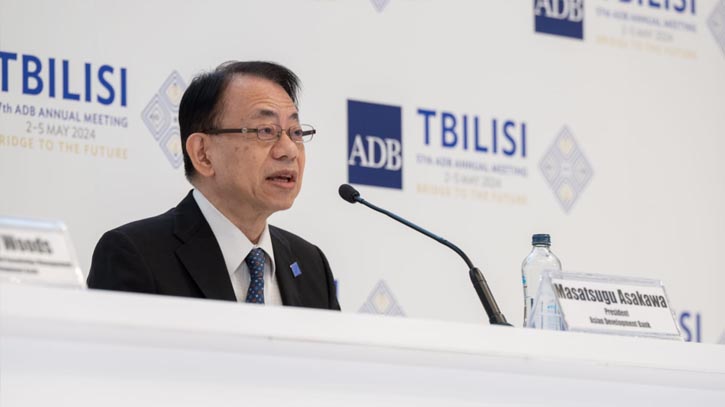
Photo: Collected
Asian Development Bank (ADB) President Masatsugu Asakawa on Saturday (4 May) highlighted harnessing AI for inclusive growth and the need to adopt digital technology and ensure its careful and equitable use.
"Artificial Intelligence offers tremendous potential to drive growth and help address development challenges in areas like healthcare, agriculture, and climate change," he said, shedding light on priority for the future.
The ADB President added that developing countries will miss out if they are not able to adopt this technology.
There are also risks from AI, such as bias and lack of transparency, he said while speaking at the formal opening session of the 57th Annual Meeting at Concert Hall here.
Georgia's Prime Minister Irakli Kobakhidze, among others, was present. A colorful event showcasing the rich Georgian culture followed.
The ADB President said the organization is working hard to strengthen the capacity of the developing member countries to deploy responsible AI solutions that follow an ethical framework and drive inclusive growth.
"We believe that bridging the digital divide, and opening opportunities from AI, are key to a more prosperous future," he said.
The ADB President said they have come together at a time when people of the region face challenges that demand close attention and coordination.
"The impacts of climate change are unrelenting, and the risks from conflict and crisis can quickly undermine their livelihoods, and even their survival," Asakawa said.
"Let us move forward together, as we build the bridge to a more prosperous, inclusive, resilient, and sustainable Asia and the Pacific," he said.
Beginning with the threat of climate change, he said this threat cannot be ignored, and their response cannot be delayed.
"2023 was the hottest year on record. We see its effects on people and risks to future development. Crops and food systems are increasingly vulnerable," Asakawa said.
He said the bridge to the future must be one that is inclusive. "No one should be denied the benefits of development because of barriers to obtaining financing."
Driving green globalization
"Our presence in this room demonstrates how deeply our world is connected. We should celebrate this. We should also develop these connections to build greener and more open economies," said the ADB President.
It might be easy to look back at the pandemic, or at current geopolitical tensions and conflicts, and conclude that globalization is dead. "I do not believe it."
"It is true that global trade and supply chains are vulnerable to shocks. But the answer cannot be protectionism and segmentation," Asakawa said, adding that free trade and free movement of capital have benefited the Asia-Pacific region for decades, and this must be the way forward.
He laid emphasis on exploring how to deepen regional cooperation, in order to build resilience in supply chains, promote cross-border trade, bolster private sector investment, and strengthen financial and tax cooperation.
Trade-related activities account for up to 30% of global carbon emissions
"The uncomfortable truth is that with Asia’s strong growth, our contribution to greenhouse gas emissions is rising," Asakawa said.
He said now is the time to act to reduce global value chain-related emissions for a more sustainable future.
Supporting members with the greatest need
The ADB President stressed that their bridge to the future cannot leave behind those with the greatest need.
"The poorest and most vulnerable populations, including those in small island developing states, face the heaviest burdens from climate change, economic shocks, and conflict," he said.
The ADB chief said their financing must continue to include resources on concessional terms, including grants.
"The Asian Development Fund has been a crucial vehicle for this. And with a replenishment completed on Thursday, we will be able to deliver up to $5 billion to meet these needs," the ADB President said.
Messenger/Mumu


